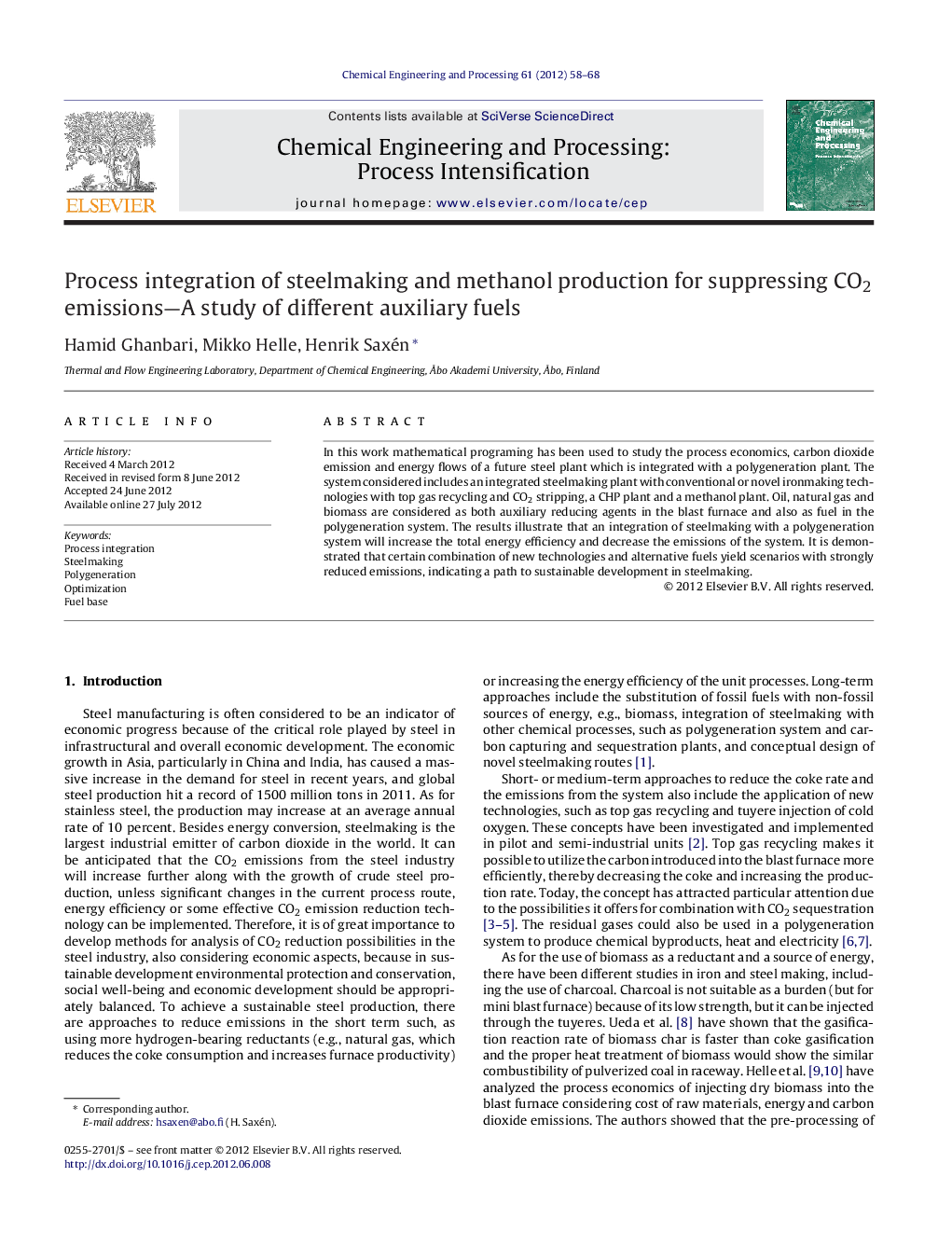| Article ID | Journal | Published Year | Pages | File Type |
|---|---|---|---|---|
| 686981 | Chemical Engineering and Processing: Process Intensification | 2012 | 11 Pages |
In this work mathematical programing has been used to study the process economics, carbon dioxide emission and energy flows of a future steel plant which is integrated with a polygeneration plant. The system considered includes an integrated steelmaking plant with conventional or novel ironmaking technologies with top gas recycling and CO2 stripping, a CHP plant and a methanol plant. Oil, natural gas and biomass are considered as both auxiliary reducing agents in the blast furnace and also as fuel in the polygeneration system. The results illustrate that an integration of steelmaking with a polygeneration system will increase the total energy efficiency and decrease the emissions of the system. It is demonstrated that certain combination of new technologies and alternative fuels yield scenarios with strongly reduced emissions, indicating a path to sustainable development in steelmaking.
► We study a future concept where a steel plant with novel operation and CCS is integrated with a polygeneration plant. ► Oil, natural gas or biomass acts as reducing agent in the blast furnace and as extra fuel in the polygeneration system. ► The process economics of the entity is optimized under different conditions by nonlinear programing. ► An integration of steelmaking with a polygeneration system increases the energy efficiency and decreases emissions. ► Some combinations of new technologies and auxiliary fuels proved to yield promising sustainable steelmaking concepts.
